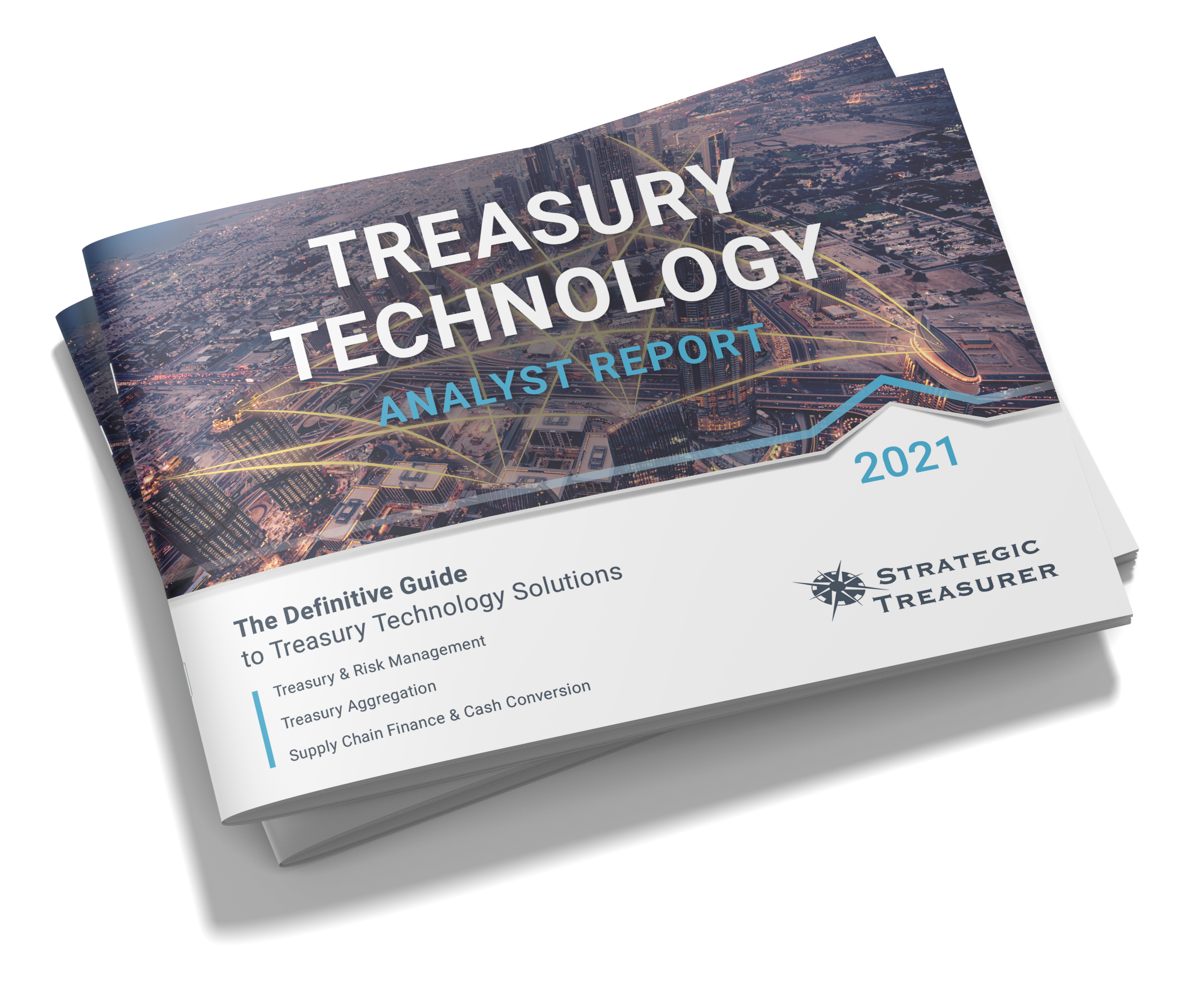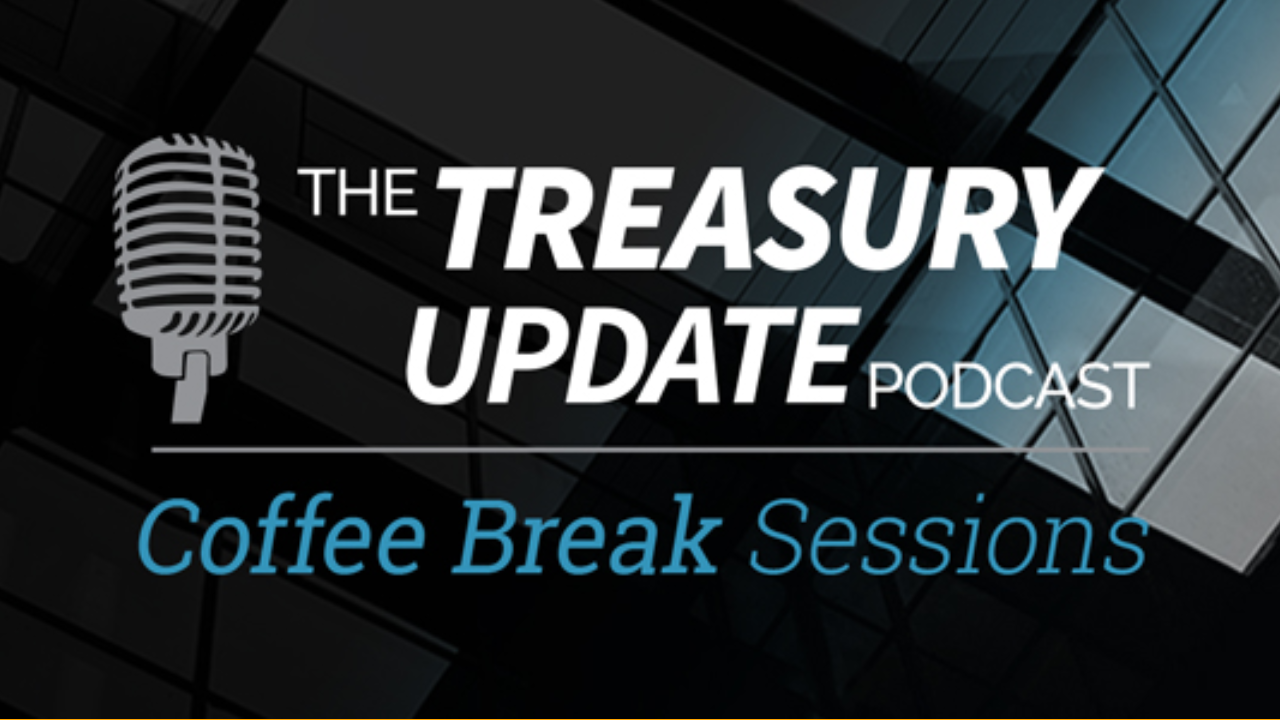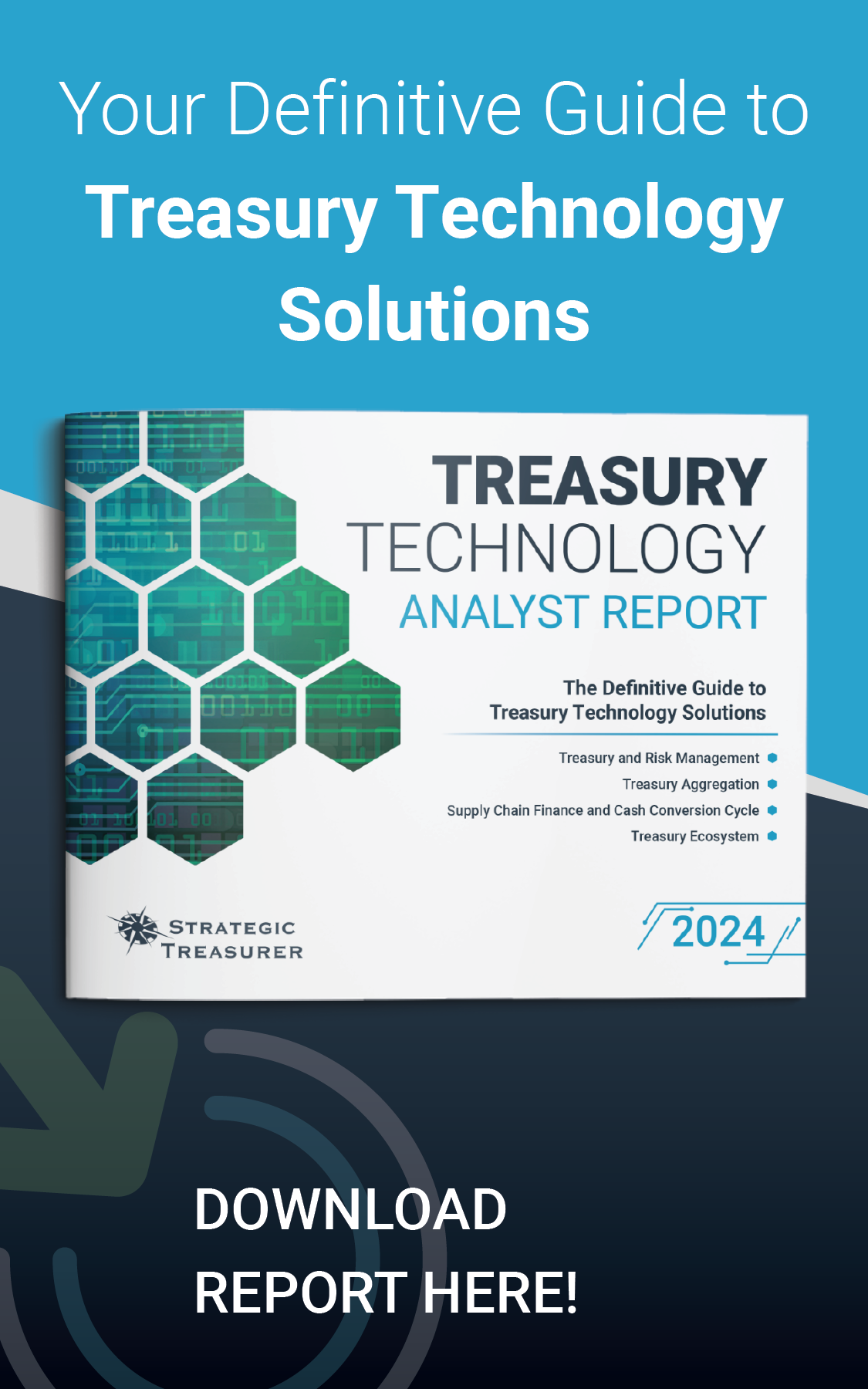
Session 63
Coffee Break Session:
What Is Factoring?
Host:
Alexa Cook, Strategic Treasurer


Speaker:
Craig Jeffery, Strategic Treasurer


Episode Transcription - (Coffee Break Session Series) - Episode 63 - What Is Factoring?
Alexa Cook 0:00
Hey guys, welcome to The Treasury Update Podcast Coffee Break session, the show where we cover foundational treasury topics and questions in about the same amount of time it takes you to drink your coffee. This is your host Alexa and I’m joined today with Craig Jeffery, Managing Partner of Strategic Treasurer. Welcome back, Craig.
Craig Jeffery 0:23
Thanks, Alexa.
Alexa Cook 0:25
Yeah, so today we’re going to continue on through our supply chain financing topics, and we’re going to cover factoring. So, Craig, what is factoring?
Craig Jeffery 0:33
Yeah, that’s a good question. And you know, that depends on where you are as well if it’s a desirable method, or perhaps viewed negatively, but factoring is the process of well, let me just describe it. Let’s say I’m a company I have a receivable, I want to convert that receivable to cash but I have to wait for my customers to pay me, but I want the money sooner and maybe I’m in a regular position where I want to get those funds sooner. And so, in many cases, you would use a bank and you would factor those invoices, the factor refers to a percentage, let’s say you get 97 and a half cents on the dollar, 98 cents on the dollar for those invoices that you’ve sent out. And then the bank gives you the 97 and a half or 98 cents, whatever the number is, for those invoices and then when those are paid, they’re paid to the bank. It’s a way of the bank receives the funds for them. They’re receiving through an account that they control but its funds are managed that way. So, factoring is a way of not just having your receivables be collateral for the payables, you actually factor them or give them or sell them to the bank who pays you a certain percentage, you know, fairly close to 100% for those invoices.
Alexa Cook 2:00
So, really what’s the purpose of factoring or why would we use it?
Craig Jeffery 2:04
I want to speed up my conversion of a receivable to cash. And this is one way to do that. So, it’s banks are like now they have a asset. The discount that they offer, the factor that they offer is a good return for them. The management of that process. They have a good link to the company that is collecting those funds, and they feel very good with the customers who are paying them. And so, it can be a very affordable way of raising capital that you need.
Alexa Cook 2:38
And I feel like you’ve kind of alluded to it earlier, but really what’s the perception of factoring in the treasury space?
Craig Jeffery 2:44
Yeah, that depends. I think I did talk a little bit about that. But the issue like in North America in the US, factoring has traditionally had a bit of a negative connotation. It isn’t negative, but it has had a bit of that that view that, “Why are you selling the receivables to someone else? Why as a I’m concerned, perhaps that my customer who’s paying me is now sending money to a bank. What’s the problem with that?” And that’s been a little bit of a negative impression on that, and it shouldn’t be that way. It’s not that way in many, many countries, Europe, it’s a fairly common process. Why? Why wouldn’t you factor your invoice to collect funds sooner to eliminate some of the up and down of the lack of certainty of when you’re going to get a payment? So, it’s very positive and very common in many regions and many, many countries. In some areas. It’s not as common and not looked on as positively. Some view it as maybe you’re becoming insolvent, which is not a real appropriate approach to it. But those are some of the perspectives that you see differing on a regional basis.
Alexa Cook 4:01
Let’s do a quick recap on: What is factoring. So really, it’s the process of converting your receivables to cash quicker, typically with the use of a bank and what’s the purpose of it? It’s really again, speeding up that conversion of the receivables to cash. And it can be a more affordable way to do so if you’re utilizing a bank. Yeah, and then I guess we kind of talked about how the perception was and traditionally it’s been a little more negative in North America or the US and seen as selling your receivables. However, it is widely used across the globe and in many different regions. So that negative connotation in the US may be a little bit dated, if I dare say, is there anything you wanted to add there, Craig?
Craig Jeffery 4:40
No, it’s been a good discussion on some of these financing vehicles. Thank you.
Alexa Cook 4:46
Yeah. Thanks, Craig. And thanks again to all of our listeners. And make sure you tune in every first and third Thursday of the month for a new episode. And as always, we love hearing from you guys. If you want to send us an email, questions, topics, anything like that, you can reach out to us at podcast@strategictreasurer.com Thanks again, Craig.
OUTRO 5:07
This podcast is provided for informational purposes only, and statements made by Strategic Treasurer LLC on this podcast, are not intended as legal, business, consulting, or tax advice. For more information, visit and bookmark strategictreasurer.com.
- Treasury & Risk Management Systems
- Treasury Aggregators
- Supply Chain Finance & Cash Conversion Cycle




